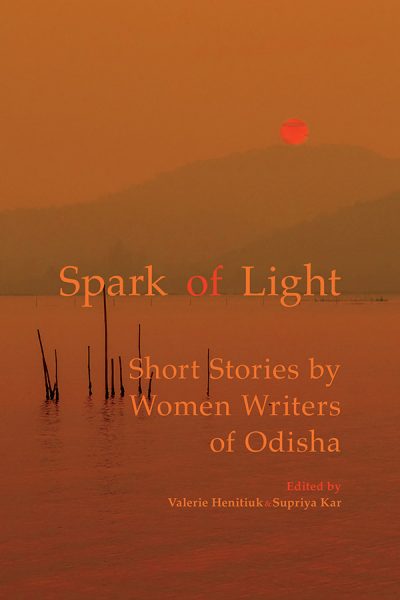Spark of Light is a diverse collection of short stories by women writers from the Indian province of Odisha. Originally written in Odia and dating from the late nineteenth century to the present, these stories offer a multiplicity of voices—some sentimental and melodramatic, others rebellious and bold—and capture the predicament of characters who often live on the margins of society. From a spectrum of viewpoints, writing styles, and motifs, the stories included here provide examples of the great richness of Odishan literary culture.
In the often shadowy and grim world depicted in this collection, themes of class, poverty, violence, and family are developed. Together they form a critique of social mores and illuminate the difficult lives of the subaltern in Odisha society. The work of these authors contributes to an ongoing dialogue concerning the challenges, hardships, joys, and successes experienced by women around the world. In these provocative explorations of the short-story form, we discover the voices of these rarely heard women.
About the Editors
Valerie Henitiuk is the executive director of the Centre for the Advancement of Faculty Excellence, and professor in the Department of English at MacEwan University. Her research focuses primarily on translation studies, world literature, Japanese literature, and women’s writing. She is also editor-in-chief of the journal Translation Studies. Supriya Kar is an editor and translator from Odisha, India. She previously worked as an editor at Cambridge University Press India, and now edits the online journal, Indian Literature Today, which publishes Indian literature in English translation.
Reviews
In highlighting vernacular literature in English translation, Spark of Light contributes to a development that Subramanian Shankar has termed vernacular postcolonialism. Vernacular postcolonialism seeks to capture the vernacular idioms and sensibilities of a specific region and language. . . . Even though the vernacular may often resist translation, many of the vernacular sensibilities can indeed be captured in translations. The English translations of Odishan short stories thus also enrich the postcolonial archive.
Canadian Review of Comparative Literature
Table of Contents
- Acknowledgements
- Introduction / Valerie Henitiuk and Supriya Kar
- The Mendicant / Reba Ray
- They Too Are Human / Sushila Devi
- The Vigil / Suprabha Kar
- In Bondage / Basanta Kumari Patnaik
- Ruins / Gayatri Basu Mallik
- Pata Dei / Binapani Mohanty
- A Timeless Image / Banaja Devi
- The Ring / Pratibha Ray
- Man of the Century / Premalata Devi
- The Mystic Bird / Archana Nayak
- The Lotus Man / Mamata Dash
- A Fistful of Hope / Golap Manjari Kar
- Curfew / Sanjukta Rout
- The Trap / Yashodhara Mishra
- A Writer’s Alter Ego / Binodini Patra
- A Mother from Kalahandi / Gayatri Sharaf
- The Sound of Silence / Susmita Rath
- The Worn-Out Bird / Aratibala Prusty
- A Kerchief of Sky / Sanghamitra Mishra
- Misery Knows No Bounds / Sarojini Sahoo
- Moonrise / Supriya Panda
- Shadows of the Moon / Mona Lisa Jena
- Sin / Paramita Satpathy
- Mother / Chirashree Indrasingh
- Four Microstories / Pallavi Nayak
- Droplets of Memories / Deepsha Rath
- About the Contributors
This work is licensed under a Creative Commons License (CC BY-NC-ND 4.0). It may be reproduced for non-commercial purposes, provided that the original author is credited.
